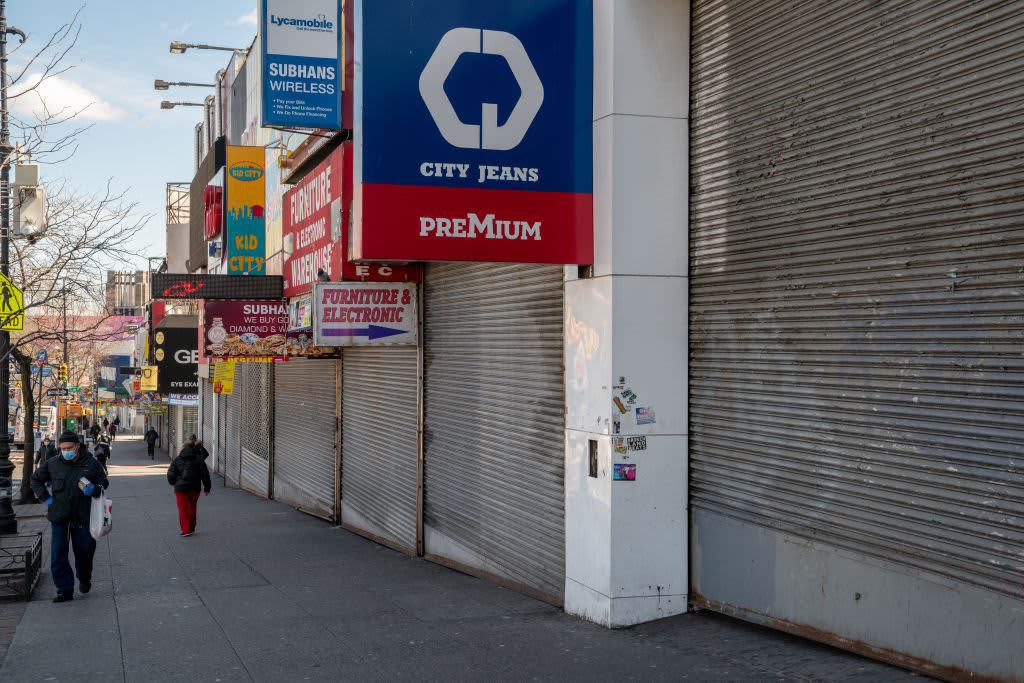As small business owners await a much-needed lifeline Friday in the form of a massive expansion of the Small Business Administration’s 7(a) lending program, new data show just how dire the situation is for Main Street as questions circulate about the program’s readiness.
The National Federation of Independent Business’ Research Center is out with a third survey on the impact of the COVID-19 pandemic, and the sector is deteriorating rapidly. The data show 92% of small employers are negatively impacted, up from 76% just 10 days ago. What’s more, half say they can survive for no more than two months. One third of businesses said they believe operations are sustainable for between three and six months.
“The severity of the outbreak, and regulatory measures that cities and states are taking to control it, are having a devastating impact on small businesses,” the survey said. “Almost all small employers are now impacted by economic disruptions related to COVID-19.”
The survey was conducted on March 30 and collected nearly 1,200 responses from business owners with less than 500 employees.
The NFIB said many business owners are eager to access funding under the Paycheck Protection Program loans, a $349 billion program passed as a part of the $2 trillion aid package last week. More businesses are talking with their banks — with one third reaching out to their lender or the SBA about finance options and a quarter planning to do so.
While small business advocates are hopeful about the program, questions do remain about the loan volumes expected and the readiness of all parties in getting this up and running tomorrow. An official familiar with the PPP loan launch said official guidance for the banks had not yet been finalized, but they are still aiming to launch on Friday.
Several participating banks echoed these responses in conversations with CNBC, including J.P. Morgan, the largest U.S. bank. But Treasury Secretary Steven Mnuchin, in a White House press conference Thursday evening, said the program “will be up and running tomorrow.”
The SBA and Department of the Treasury held a call with trade groups Wednesday, according to two trade sources participating on the call, to discuss the loan program. Questions were asked on a variety of issues including if banks would be incentivized to lend at 0.5% interest rates.
One source said the officials did not say if they were confident or not about bank’s willingness to lend, but instead justified the low interest rates being given to small business owners, which were dropped from an initial maximum of 4%. On Thursday evening, Mnuchin said the interest rates were being raised to 1% after hearing concerns from banks.
The second source said the call was a “mess and a dumpster fire” and that the Treasury and SBA are not coordinated and were unable to have answers ready for basic questions. The source was not confident the program would launch tomorrow.
The biggest concern from both sources on the call seemed to be whether the banks would have enough clarity to feel comfortable and confident participating in the loan program, which will operate as first-come, first-served for small business owners.
The SBA did not respond to request for comment on this story.
Meanwhile, advocacy groups are remaining hopeful the loans will be made available as banks work quickly to get programs in place.
“I think lenders are, and have been, doing all they can to get up to speed and make sure they’re able to handle the influx of loans, but that influx is going to be massive,” says Molly Day, vice president of public affairs at the National Small Business Association.
And small business owners are in the same boat as they await answers. Adam Rammel, owner of Brewfontaine in Bellefontaine, Ohio, said he already has pre-applications in with both a national lender and a local bank to keep his taproom alive.
“My CPA is driving this. Treasury says it’s first-come, first-serve, giving restaurants fear that money will run out, and they should take the PPP now, which limits their forgiveness to a period of when they are closed or under limited operation, since it is 8 weeks from the origination of the loan,” he said.
